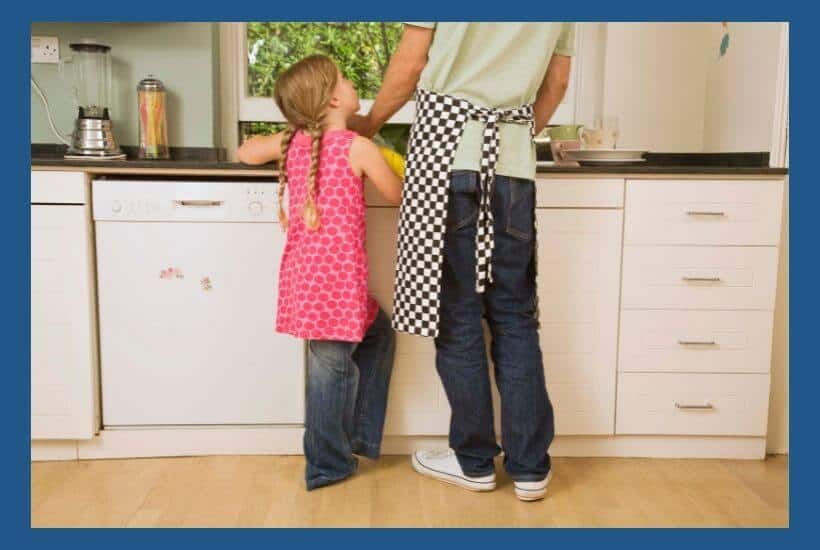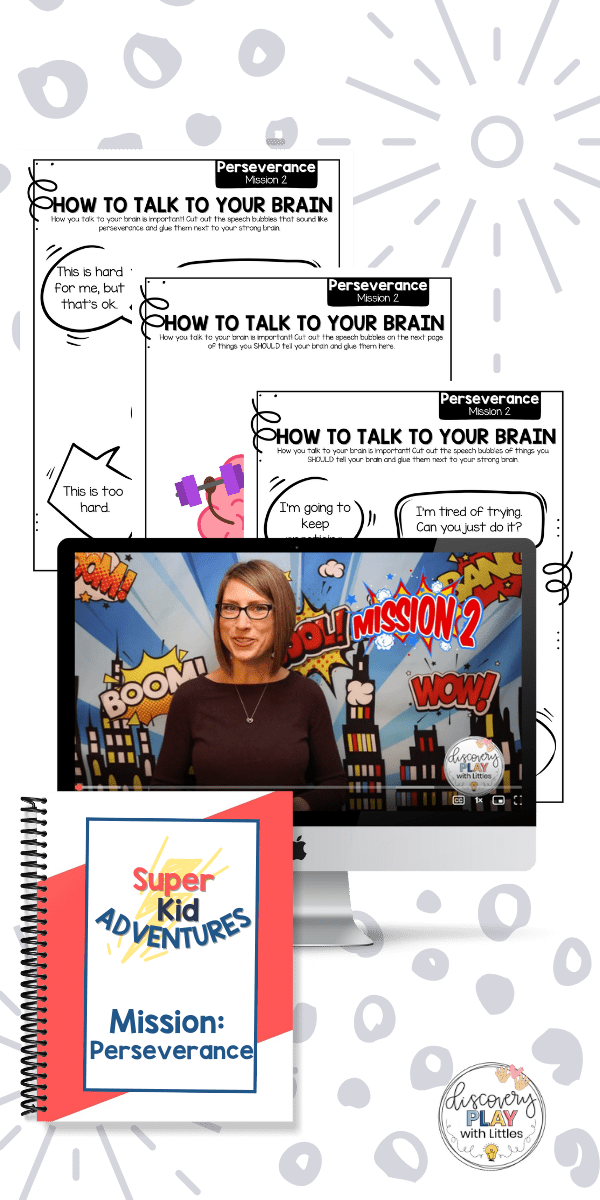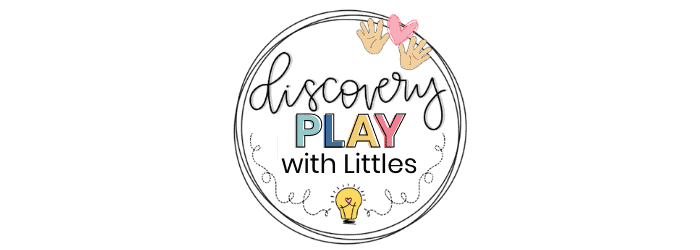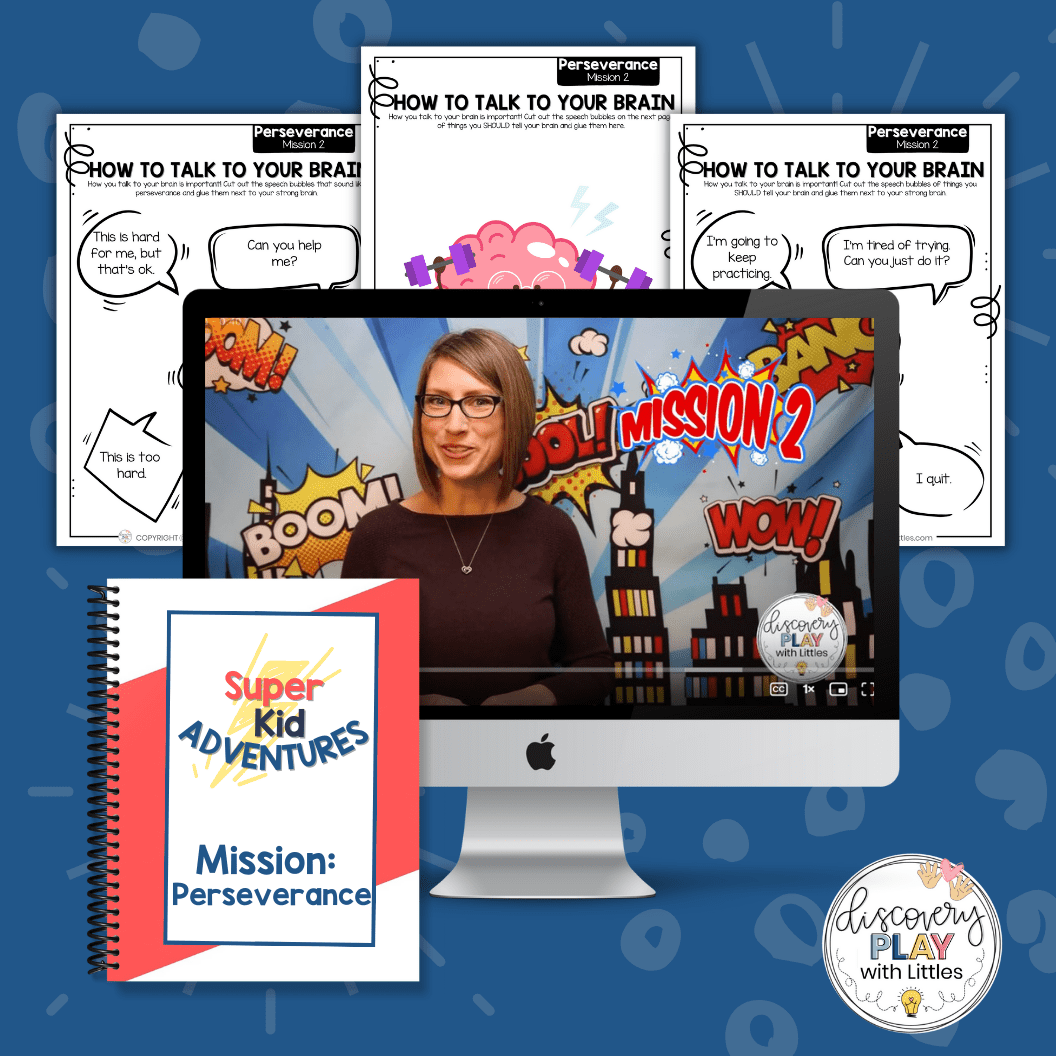“Just like Charlie, Mom!” My 3-year-old beams. Charlie is a character in one of our favorite books, and we read how he is responsible. Charlie cleans up his own toys, brushes his teeth without being asked, and helps with a happy heart.
We are talking about being responsible, and my son was full of pride when he cleaned up his toys…just like Charlie.
We all want our children to be responsible. Responsibility is crucial to success in life. Raising responsible human beings takes intentionality.
When we start discussing and drawing attention to responsibility from a young age, it becomes second nature for kids. Responsibility is just what we do.
For our youngest kiddos, responsibility can be explained as “doing the job you need to do, without being asked or reminded.” Even at the age of 2, kids can have jobs they are expected to do.
My 2-year-old takes his plate from the table to the counter after dinner time. He brushes his teeth (I do it first, and then he gets a turn), cleans up his toys, and helps with chores. He knows the things I expect him to do, and he is excited to get jobs of his very own.

Responsibility is More Than Just Chores
At its core, responsibility is “doing the job that we have to do,” so it’s easy to focus on the list of things we have to do, our chores. Responsibility is so much more than that.
It’s doing the things you need to do without being asked, or for older kids, it can even be seeing that something needs done and just doing it. It could be seeing some trash on the ground and picking it up. Maybe it’s almost dinner time so your child sets the table without being asked.
At home, responsibility might look like kids doing their chores without being asked, picking up after themselves, and being willing to lend a helping hand when needed.
Once your child begins kindergarten, responsibility is following their teachers’ directions, doing their best work, and again, being willing to help out when needed.
Later in life, responsibility is showing up to work on time, doing a good job, and fulfilling everything expected of you at that job in a way that keeps you employed.
At every stage in life, we need to show some level of responsibility to survive. Teaching responsibility can sound like a difficult thing to do, but it’s really simple.

Are you tired of hearing “It’s TOO HARD!” followed by a meltdown?
Using this one simple phrase you’ll get in this powerful lesson, you’ll not only be able to help your kiddo not give up but you’ll:
>Activate their superpower of perseverance so that they can turn around a meltdown and keep trying
>Inspire them to use perseverance…even when it’s hard
>Teach them to recognize the warning signs of giving up, and how to turn it around by taking control of their choices.
Grab your powerful FREE video lesson to teach your kiddo one of the most powerful keys to perseverance.
How Do I Teach Responsibility?
Read & Discuss Responsibility with Kids
Reading books is my number one go-to for almost everything. There are many books that either talk about responsibility, or where the characters use responsibility. If the books aren’t about responsibility, but a character models it, be sure to point out who showed responsibility and what they did that was responsible. If the opposite is true and a character didn’t use responsibility, discuss that too. Stop in the middle of the story and ask questions like “What should the character do now? What would you do? How will this make the other person feel?”
Social Stories Teaching Responsibility
This is something I do all the time! A social story is a story about a social situation and your child will have to figure out what the right thing to do is. You can use it as a story just talking verbally, or you can act it out with some of their favorite stuffed animals or dolls.
For example, sit down with your child’s two favorite stuffed animals, ours are bear and giraffe. Work through a situation that your child is likely to encounter.
“Bear and giraffe are sitting down to dinner.” “This is delicious, Bear, thank you for cooking!” “I’m glad you could come over Giraffe.” “Ok, Giraffe is done eating, what should he do?” (Should he just get up and leave the table? Do you want him to ask to be excused? Does he need to clear his plate?) With a little prompting, you can walk your child through expectations in situations your child will encounter.
Set High Expectations
When asked to clean up your toys, shoving them all under your bed isn’t showing responsibility. A lot of times I ask my son to do something and just assume he does it and does it correctly. I have to be intentional at teaching him the correct way to do what I’m asking. He’s only two and if I don’t take the time to intentionally teach him how to do things, I can’t expect him to do them the way I want him to. I also need to be intentional about following up after it’s finished. I’m intentional about telling him what he did well, how helpful he is, or re-teach a procedure.
Model Responsibility
“More is caught than taught.” We have high expectations for everyone, but sometimes we give ourselves a little more grace. You can’t expect your child to keep their clothes picked up if you leave your clothes all around the house. Model the expected behaviors, children will learn how to act or what is expected just by watching you.
A lot of the time, especially for working parents, kids aren’t around to see a lot of your responsible acts. Talk about the different ways you were responsible when telling your child about your day. Discuss all the choices you could have made, why you chose the responsible choice, and what the benefits of being responsible are. Did you have to wake up early to get to work on time? No, you could have hit snooze one more time and slept in, but because you were responsible and got to work on time, your boss will trust you…
Hold Your Child Accountable
Wouldn’t it be nice if children did exactly what we asked the perfect way every single time? I sometimes get so wrapped up in what I’m doing that I don’t bother to check in to see if he did the job correctly. Children are experts at figuring out what they can get away with. If you give them directions but never check to see if they obeyed, they will soon learn they don’t have to do their job the right way. When they are finished doing what you asked, make sure to check in and give them a big hug. Tell them how helpful it is that they did the job you asked the right way. It is important to help them feel proud of themselves for being so helpful.
Start Right Away
It is much easier to talk to a 2-year-old about responsibility and grow your expectations as your child grows than to sit a 10-year-old down and tell them a list of new expectations. The older your child gets without having any responsibility given to them, the harder it will be to change their habits. Plus, when your child is young, there is the added bonus that they actually WANT to help. They WANT to be like Mom or Dad, and they WANT to contribute to the household. Start introducing them to the idea when they are a willing participant.
It’s never too late to start introducing responsibility to your kids. If your child is older, sit them down and have an honest conversation with them. Tell them that running a household takes work and everyone has to contribute. Include them in the process. Have them help you brainstorm a list of things that need to be done on a daily, weekly, and monthly basis. What will happen if we never do the dishes? Have your child help you divide up the list and assign tasks. If they help create a new plan, they will be much more invested in it.
Raising responsible kids is an enormous task-raising kids is an enormous task period! By using the 6 steps above, I hope to make it a little easier. I hope this helps you teach your kiddos to be responsible… just like Charlie.
You Might Also Enjoy
7 Simple Ways to Teach Your Child Kindness
Fostering Independence in Young Children
How to Help Your Child Develop Self-Help Skills
Your Turn
How do you teach responsibility?


Do you have a list of books that teach responsibility? What book is Charlie from? Thanks!